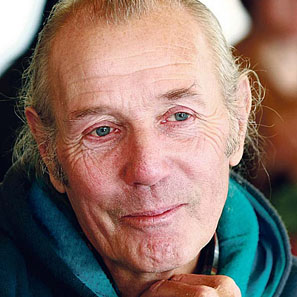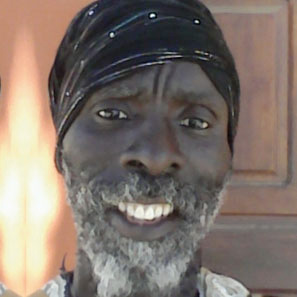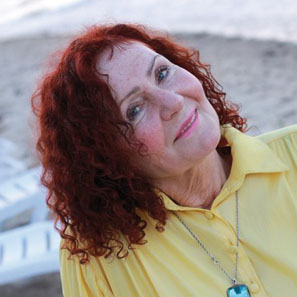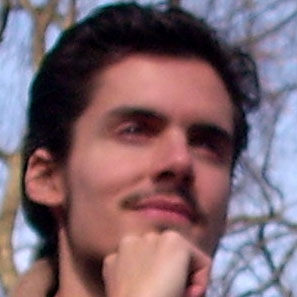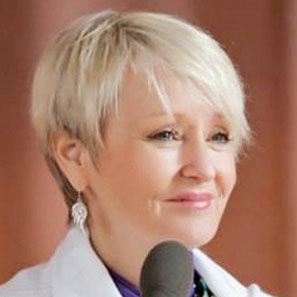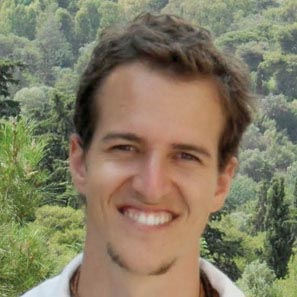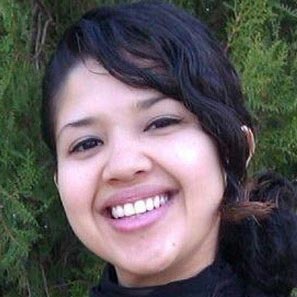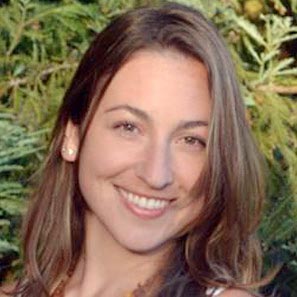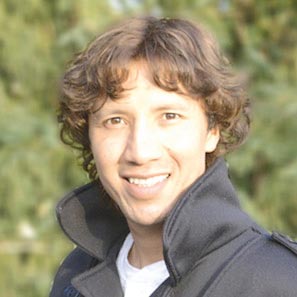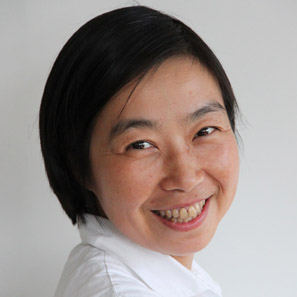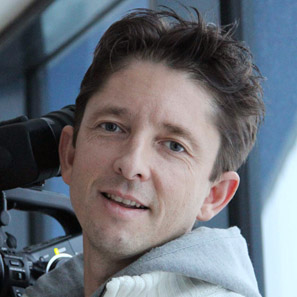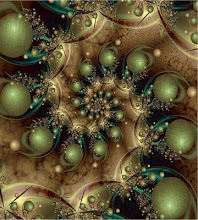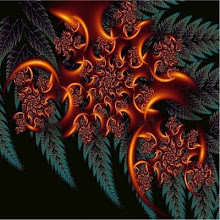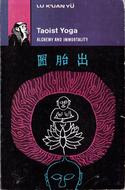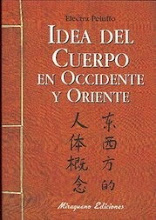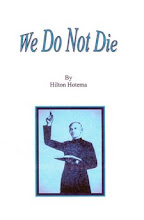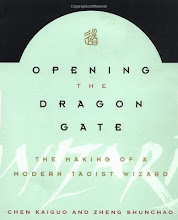In the Western tradition especially the church investigated many cases of Inedia like with Nicholas of Flüe, Alpais of Cudot, Marthe Robin, Therese Neumann and many more.
In 1843 King Ludwig I of Bavaria ordered a testing of Maria Furtner, a farmer's daughter who had to stop eating at the age of 12 years after a strange illness. Allegedly she did not eat for over 50 years. When she was tested for five weeks in the Royal Clinic of Bavaria, the doctors published a final report in the Bulletin of the Academy of Sciences saying, they do not see a reason to presume "cheating or deception".



More public awareness aroused the case of Hira Ratan Manek, who was studied medically a few times. Most impressive is a study in India where Manek was under medical supervision for 411 days. Although he did not eat for over a year, just drinking water he only lost 19 kg, which is impossible by classical medical standards. The results were published in the Gujarat Medical Journal but as there was only "human" supervision and no 24-hour CCTV-control, the study provided only Level-B evidence, and was never taken seriously by mainstream scientists.

Ge Hong
| Part of a series on |
| Taoism |
|---|
 |
| Portal Taoism |
Although a prolific writer of many literary styles, most of Ge's early work, such as rhapsodies (fu), verse (shi), historical commentary, and biographies, are now lost. His surviving works consist of one volume of hagiographies, entitled Shenxian zhuan (Traditions of Divine Transcendents); and two volumes of essays and alchemical writing totaling seventy chapters, collectively entitled Baopuzi (抱朴子) or "The Master Who Embraces Simplicity", Ge’s sobriquet. In the Neipian (Inner Chapters) volume of the Baopuzi, Ge vigorously defends the attainability of divine transcendence or "immortality" through alchemy; the Waipian (Outer Chapters) volume is almost entirely given to social and literary criticism.
Most of Ge's surviving work demonstrates the influence of notable essayists and thinkers from the Han period (206 BC- 220 AD) such as Sima Qian (c. 145-86 BC), and Wang Chong (c. 27-100), as well as poets and literati from the post-Han era, such as Ji Kang (223-262) and Zuo Si (c. 250-305). Modern scholars have recognized his influence on later writers, such as the Tang dynasty (618-907) poet Li Bai (701-762), who was inspired by images of transcendence and reclusion. Nevertheless, Ge’s work was never enshrined in famous collections of essays and poetry, such as the Wenxuan (Selections of Refined Literature) m as was Ji Kang’s essay, Yang sheng (Nourishing Life), whose style Ge freely imitated. Reflecting the complex intellectual landscape of the Jin period, Ge is essential reading for an understanding of early medieval Chinese religion, culture and society. Recent scholarly and popular translations of Ge’s writing into English have ensured his inclusion in the swelling tide of enthusiasm for esoteric and religious Daoism in the West.
Contents
Ancestry
Biographical sources for Ge are varied, but almost all of them are based either in whole or in part upon his autobiographical "Postface to the Outer Chapters". It is nearly impossible to judge the veracity of Ge’s account of his early family history as found in the postface. Following literary convention, he claims that his early ancestors were of a ruling house that adopted the name of their dynasty as a family name. A more recent ancestor who held the post of Regional Inspector of Jingzhou, during the Former Han, resisted the usurpation of the Han dynasty by "the bandit", Wang Mang (33 BC-22 AD), and was exiled to Langya in modern Shandong province. The sons of this ancestor, Pu Lu and Wen, fought together to assist Emperor Guangwu of Han (reigned 25-57) in restoring the Han dynasty. Due to his official status in the government army, Pu Lu received rich rewards and a lofty official appointment while Wen, who followed his older brother into battle as a private soldier, did not. This situation was unacceptable to Pu Lu who, according to Ge’s account, eventually gave away his estate and position to his younger brother and retired south of the Yangtze River to become a farmer in Jurong, located in Jiangsu province, near present-day Nanjing.Ge’s family remained in the south for generations, and occupied official positions in the Kingdom of Wu (220-280), which ruled southeastern China after the final dissolution of the Han dynasty in the early 3rd century. According to Ge, his grandfather, Ge Xi, was an erudite scholar who governed several counties in modern Jiangsu and Zhejiang provinces, including present-day Hangzhou. He eventually rose to the rank of Junior Mentor to the crown prince of Wu, and occupied numerous posts within the central administration.
Ge describes his father, Ge Ti (died 295), in similar, laudatory terms as a scholarly gentleman of model conduct. Ge Ti served in various civil and military positions, and was eventually appointed Governor of Kuaiji prefecture. Around the time of this appointment, the Jin dynasty, which had already succeeded in unifying northern China around 265, invaded Wu under the command of the famous literatus and Jin general, Du Yu (222-284). Du Yu would return to the north and write a well-known commentary to the Zuo zhuan (Zuo Commentary to the Spring and Autumn Annals) after the conquest of Wu in 280.
The Jin victory changed the fortunes of Ge’s family. Because the Jin administration attempted to check the power of the southern gentry by giving them positions of little authority, Ge Ti initially lost prestige and power under Jin rule. He was appointed to various posts at the Jin capital of Luoyang, as well as positions in several counties. Ge Ti’s administrative skills were eventually rewarded with a promotion, and he died while in office, serving as the Governor of Shaoling in modern Hunan province, an area of relatively modest size.
Early life
Ge was born in 283 in Jurong, just three years after the Jin conquest of Wu. He was the youngest of three sons, but no information exists concerning his older brothers. By his own account, Ge possessed a serious demeanor as a child, declining to play with other children or to participate in activities such as chess, gambling, or cockfighting. He was equally uninterested in serious study, and states that his indulgent parents never compelled him to pursue the kind of academic training that was probably expected for the offspring of an influential gentry family. Ge was only twelve years old when his father died in 295, an incident that seems to have inflicted some hardship on his family. He states that he personally engaged in plowing and planting, suffering from cold and hunger. The destruction of his father’s library by soldiers due to civil strife worsened Ge’s plight and, in one colorful passage from his postface, he describes how he used his meager income earned from chopping firewood to underwrite his education. Ge’s claim of extreme poverty is generally regarded as an exaggeration. It has been rightly observed that so distinguished a family, with such a long and prestigious record of government office, would not have declined so quickly into economic ruin.It is probably true that the death of his father was a blow to Ge’s public aspirations, for it may have meant losing his father’s network of friends and allies that might have helped him find an official position. Several modern scholars have correctly pointed out that ordinary farmers could ill-afford such luxuries as books or the leisure time to read them. The possibility that Hong subsidized a broad education with manual labor is remote at best. Regardless, it is not hard to imagine that, upon his father’s death, Ge’s family underwent a period of relative hardship, during which he may have personally supervised the family estate, an activity that took time away from his studies.
The impressive range of Ge Hong’s early education and his youthful literary endeavors also cast doubt on claims of extreme poverty. According to his biography in the Jin shu (History of the Jin Dynasty), it was during this early period that Ge began his study of the canon of texts, generally associated with ru jia, often translated simply as "Confucianism". Ge states that he began to read classics such as the "Shi jing" (Book of Odes) at fifteen, without the benefit of a tutor, and could recite from memory those books he studied and grasp their essential meaning. His extensive reading approached "ten thousand chapters", a number meant to suggest the dizzying scope of his education. The "ten thousand things" is used often in Daoist texts to describe the vast manifestations, life forms or types of matter in the reality of the Dao.
In reality, his formal education probably began much earlier, as elsewhere in his autobiographical postface, Ge states that he had already begun to write poetry, rhapsodies, and other miscellaneous writings by the age of fourteen or fifteen (c. 298), all of which he later destroyed. Ge’s statements regarding early poverty and belated studies convey the sense that his education was largely the product of his own acumen and determination rather than his privileged social status. Such exaggerations may be regarded as literary conventions, intended to show the unique nature of his education in the face of financial difficulties brought on by his father’s death. Claims that he started his education as late as fifteen may also be an oblique literary reference to Confucius’ own statement in Lunyu (Analects) 2.4 that, "At fifteen, I set my heart on learning."
Around this time, or perhaps a little before (c. 297) Ge, then fourteen years old, entered into the tutelage of Zheng Yin, an accomplished classical scholar who had turned to esoteric studies later in life. According to Ge’s lengthy and colorful description of his teacher, Zheng was over eighty years old but still remarkably hale. He was a master of the so-called "Five Classics" who continued to teach the Li ji (Book of Rites) and the Shu (Documents), was a teacher of the esoteric arts of longevity, divination, and astrology, and was even an accomplished musician! Zheng Yin’s instruction in the esoteric arts emphasized the manufacture of the "gold elixir" or jin dan, which he considered the only truly significant means to achieve transcendence. His influence is reflected in portions of Hong’s writings that endorse alchemy, but are critical of dietary regimens, herbs, and other popular methods of longevity.
The process of learning alchemical recipes and receiving scriptures combined rituals, oral instruction, and textual transmission. Ge states that his master carefully limited access to these texts among his more than fifty disciples. He was only permitted to copy out a few, but lists the titles of many more in his own writings. Indeed, Ge’s "Inner Chapters" is remarkable for its extensive bibliography of alchemical scriptures, most of which exist only in fragments today. Only to Ge did Zheng Yin transmit texts such as the Sanhuang neiwen (Esoteric Writings of the Three Sovereigns), which Zheng considered to be among the most important alchemical scriptures. Ge also received three scriptures from the Grand Purity (Taiqing 太清) tradition that originated in northern China, along with their accompanying esoteric, oral instructions. These texts were relatively unknown south of the Yangtze River, and their transmission to Ge may be regarded as a rare event that owed something to Zheng Yin’s close relationship to Ge’s family. Zheng Yin was the pupil of Ge’s granduncle Ge Xuan, who was in turn the pupil of the well-known Han fangshi (occultist), Zuo Ci. Ge claims that these three texts were revealed through divine revelation to Zuo Ci, who later fled south to escape the chaos that followed the collapse of the Han dynasty.
References to canonical texts throughout Baopuzi raise the possibility that Ge received a well-rounded, if untraditional education, from Zheng Yin, who was a teacher of both the orthodox Han literary canon, as well as a master of esoteric studies. Ge’s description of his tenure as one of Zheng Yin’s students recalls a private school, complete with students doing work, such as sweeping the floors and chopping firewood, in addition to their studies. Traditional education in the so-called Confucian canon was out of fashion in Ge’s era. It may be the case that Ge, deprived of his father’s instruction and furthermore suffering the loss of his father’s library, attended a private school that emphasized the non-canonical education, popular after the dissolution of the Han. Zheng Yin’s close relationship to Ge’s family, through Ge Xuan, might have naturally led to Ge Hong’s privileged instruction in important esoteric texts.
Early official career
Around 302, Zheng Yin, perhaps catching wind of the growing political turmoil, moved to Mount Huo in modern Fujian province to live in seclusion with a few select disciples. Ge did not accompany him, and reported that Zheng Yin’s exact whereabouts were unknown. In the following year, at the age of twenty, Ge began his official career with the military service, swept up in a tide of rebellion and warfare. He was appointed to the position of Defender Commandant, and ordered to raise a militia of several hundred to fight Shi Bing, an ally of the rebel, Zhang Chang, who sought to overthrow the Western Jin. Hong, who served under the command of Gu Mi, is not mentioned in official accounts of this conflict. In his autobiographical postface, for a literati he is unusually forthcoming about his battlefield heroics and abilities as a commander. Although he only admitted to killing two men and a horse by arrow,[1] such accounts of Ge’s bravery is made all the more startling by his insistence that in his youth, he was so weak that he could not even draw a bow. Such self-deprecating physical descriptions are probably best seen in the same light as his claims of early poverty. Based on his service record, it is more likely that Ge received military training in his youth, and was skilled in both the use of arms and strategy.After Shi Bing’s force was destroyed, he was discharged and recognized for his service with the honorary title of "General Who Makes the Waves Submit". According to Ge’s account, soon after he left for the Jin capital of Luoyang to search for "unusual books". In reality, Ge’s journey may have been inspired by the more mundane desire to parlay his military honors into an official position at the capital. During this time, the so-called "War of the Eight Princes" consumed the area around Luoyang, a civil conflict that would eventually result in almost sixteen years of political chaos, prior to the collapse of the Western Jin in 317. To the southeast of Luoyang, the rebel, Chen Min, occupied a large swath of territory east of the Yangzi River, and declared himself the Duke of Chu. Owing to such a staggering degree of social upheaval, Ge found the way north impassable, and wandered in the south.
Around 306, Ge entered into the service of Ji Han (c. 262-306), a relative of the poet and essayist, Ji Kang. At the time, Ji Han was fighting several rebel groups in the south, and had just been appointed Regional Inspector of Guangzhou. Ge states that he saw employment with Ji Han as a means to move south, and escape political and social chaos. It may also be that Ge and Ji Han shared a bond of friendship, based on mutual interests and literary aspirations. Like Ge, Ji Han was a military official who also excelled in literature and dabbled in esoteric studies. Ji Han wrote the "Rhapsody on Cold-Food Powder", which lauds the effectiveness of a drug, popular with the literati during the Six Dynasties era, as well as a tract, entitled "Description of Herbs and Plants of the Southern Region" that is no longer extant. The period of Hong’s employment with Ji Han was extremely brief, for Ji Han was killed while en route to assuming his new position in Guangzhou. Ge, who had traveled ahead of his new employer, was left in the south with neither job nor political patron. Thus Ge’s early official career came to an abrupt and unexpected end.
Early reclusion and writing
Rather than return north, Ge refused other honors and remained in the south, living as a recluse on Mount Luofu for the next eight years before returning to his native Jurong around 314. The decision meant that Ge avoided much of the political upheaval that ravaged the Jin state, as various contenders for the throne pillaged Luoyang over the next several years. It was probably during this time on Mt. Luofu that Ge began his relationship with Bao Jing (260-327). According to the biographies of both Bao Jing and Ge, Bao was an adept in a wide variety of esoteric studies, including medicine, and transmitted his techniques and knowledge to Hong. Conversely, Bao Jing "valued Ge very much, and married a daughter to him". Evidence for the precise timing of their initial meeting is largely circumstantial. Around 312, Bao was appointed Governor of Nanhai prefecture, not far from Mt. Luofu. Some sources suggest that Bao Jing often traveled to Mt. Luofu to study esoteric arts, during which time he would have certainly met Ge. While such accounts may be apocryphal, timing and proximity raise the possibility that the two men began their relationship while Ge lived in the far south.This period of reclusion appears to have been a time of great literary productivity for Ge. In addition to a remarkable body of writing that is now sadly lost, he also composed those extant works for which he is known today, the Baopuzi, and the Shenxian zhuan. It is nearly impossible to narrow down precisely the dates of composition for Ge’s surviving work. Autobiographical statements within the Baopuzi seem to indicate quite clearly that by the end of his residence on Mt. Luofu, or soon thereafter, Ge had written the Baopuzi as it exists today, arranged into "Inner" and "Outer" sections of twenty and fifty chapters, respectively, and had moreover composed a work called Shenxian zhuan.
Several modern scholars (notably Chen Feilong) have speculated based on close textual study that Ge revised or rewrote these twenty chapters after his final retirement in 331, and that the "Inner Chapters" mentioned here might be an altogether different edition of the work that exists today by that title. This notion, whether or not it is correct, points more generally to the difficulties of working in a textual tradition, rich in editorial revision and forgery. Robert Campany’s (2002) painstaking attempt to reconstruct the Shenxian zhuan illustrates many of the problems confronting modern scholars of Ge and early Chinese texts. According to Campany, the Shenxian zhuan as it now exists, is riddled with amendments, errors, and later additions. None of the current editions, collected within various encyclopedia of early texts, can be said to be the Shenxian zhuan, written by Ge. Campany’s study suggests that many problems of authorship and editorial corruption in Ge’s surviving work remain to be solved.
Style and content of the Baopuzi
Ge states that the Baopuzi, taken as a whole, constitutes his attempt to establish a single school (yi jia) of thought. The division of the Baopuzi into "Inner" and "Outer Chapters" speaks to Ge’s interest in both esoteric studies and social philosophy. According to Ge’s own account, he wrote the "Inner Chapters" to argue for the reality and attainability of divine transcendence, while the "Outer Chapters" blends Confucian and Legalist rhetoric to propose solutions for the social and political problems of his era. For a long time, the two parts of the text circulated independently, and were almost always categorized under different headings in officially sanctioned bibliographies.The two volumes of the Baopuzi differ in style, as well as in content. Both adopt the convention of a fictional, hostile interlocutor who poses questions to the author and challenges his claims, although the "Inner Chapters" employs this style to a more significant degree. Ge’s thesis in the "Inner Chapters" is extremely focused, pursuing a single argument with great discipline and rigor. In contrast, the "Outer Chapters" is more diffused, addressing a variety of issues ranging from eremitism and literature to the proper employment of punishments, and a pointed criticism of the process of political promotions. The style of the "Outer Chapters" is very dense, reflecting the richness of the Chinese literary tradition through frequent literary and historical allusions, and diction, that at times recalls the most obscure rhyme-prose of the Han era.
As a single work of philosophy, the two sections taken together reflect Ge’s desire to understand dao and ru, or Daoism and Confucianism, in terms of one another. In Ge’s terms, dao is the "root" and ru is the "branch". However, although he considered following the dao superior to the rules of social conduct associated with the Confucian tradition, Ge viewed each as appropriate within its proper sphere. According to his paradigm that is drawn from pre-Qin and Han sources, when the sage kings followed the dao, society was well ordered, and the natural world proceeded without calamities. As the dao declined, the ethical prescriptions of the ru arose to remedy the resulting social ills and natural disasters. Thus in Ge’s view, Daoism and Confucianism both possess an ethical and political dimension by bringing order to the human and natural world. However, because most people have difficulty following or understanding the dao, Confucianism (along with a healthy dose of Legalism) is necessary to enact social order.
On an individual level, Ge considered moral and ethical cultivation of the so-called Confucian virtues to be the basis of divine transcendence. His philosophy does not advocate a rejection of the material world on either an individual or a social level. Seekers of longevity must first rectify and bring order to their own person before achieving loftier ambitions. Ge appears to have made some effort to embody this ideal, simultaneously holding political office, while pursuing elixirs of transcendence.
Views on literature
In the Baopuzi, Ge places a high value on literature and regards writing as an act of social and political significance, equivalent to virtuous action, and at one point stating, "The relationship between writings and virtuous actions is [like that of two different names for one thing]". This sentiment reflects a trend, begun during the later Han, which saw literature as an increasingly significant tool with which an individual could establish an enduring legacy. In times of political uncertainty, when ambitious literati faced real dangers and obstacles to social or political advancement, this view of literature took on added significance.The idea that writing was a fundamentally moral act may have contributed to Ge’s high opinion of the literature of his era. Unlike the classical scholars of the later Han period, who revered the writers of antiquity with an almost fanatical reverence, Ge regarded the works of his contemporaries (and by extension his own) as equal to, if not greater than, the writers of the past: "Simply because a book does not come from the sages [of the past], we should not disregard words within it that help us to teach the dao." Ge concedes that the proliferation of writing in his own time had led to many works of poor quality; in particular, he criticizes contrived and overly ornamental prose that obscures the intentions of the author. However, he rejects the idea that established tradition alone speaks to the quality, utility, or virtue of any literary work.
Later official career
Shortly after emerging from reclusion and returning to his family home of Jurong around 314, Ge received an appointment as Clerk to the Prince of Langya, Sima Rui (276-322), who served as Prime Minister from 313 until 316. The exact date of the appointment is unclear, but it certainly occurred after Ge’s return to Jurong, and was probably early in Sima Rui’s tenure as Prime Minister. Sima Rui used the position of Clerk, which was for the most part an honorary appointment, to woo talented officials, and bring them into the fold of his administration. He appointed over one hundred people (some sources say 106) in this way, and the appointments were probably an indication of his growing political power. In 317, the Western Jin collapsed after years of civil conflict, and an invasion from non-Chinese people to the north. Sima Rui stepped into this power-vacuum, moving the Jin court south to Jiankang (present day Nanjing), and taking the title of "King of Jin" as a preliminary step towards claiming the mantle of emperor.The refugee court in Jiankang was eager to solidify its position among the southern gentry families upon whom it now depended for its survival and granted numerous official appointments and honorary titles. Ge was recognized for his previous military service with the honorary title of "Marquis of the Region Within the Pass", and awarded an income of two hundred households in Jurong. Finally, in 318, Sima Rui proclaimed himself Emperor Yuan (reigned 318-323), becoming the first ruler of the Eastern Jin (317-420).
Among the prerogatives of a new dynasty was writing the history of its predecessor. Around 318, the influential minister, Wang Dao (276-339), commissioned Gan Bao (the author of Soushen ji (In Search of the Supernatural)), Wang Yin, and Guo Pu (276-324) to write the Jin ji (Record of the Jin). Wang Dao, and others in his coterie, would exert considerable influence over Ge’s later official career. In 324, Wang Dao was made Regional Inspector of Yangzhou. Shortly thereafter, beginning in 326, Ge was summoned to fill a variety of appointments in Wang Dao’s administration, such as Recorder of Yangzhou, Secretary to the Minister of Education, and the military post of Administrative Advisor.
The fact that Ge’s official biography, and his autobiographical writing, do not mention any actual duties performed in these positions suggests that the appointments may have been honorary to some degree. It is also possible that he omitted mention of these positions in his own writings in order to preserve the veil of eremitism that obscures his autobiographical account. Wang Dao seems to have been a collector of famous recluses, perhaps out of a desire to project an image of virtuous authority. According to the official biography of Ge’s contemporary, Guo Wen (Jinshu 64), Wang built a garden in which Guo resided as a kind of hermit-in-residence, entertaining Wang Dao’s entourage with philosophical debate and clever conversation. Thus, in addition to his past services on behalf of the Jin court, Ge’s self-consciously crafted image of eremitism may have contributed to his success within Wang Dao’s administration. Regardless, it seems clear that Wang Dao knew of Ge by reputation, and sought to bring him into the fold of his personal staff.
During his tenure within Wang Dao’s administration, Ge also came to the attention of the historian, Gan Bao. Gan seems to have recognized Ge’s literary acumen, and offered him several positions on his staff. He recommended Ge for the office of Senior Recorder, a position within the Bureau of Scribes (shi guan) that was in responsible for compiling the "Imperial Diary", as well as the office of Editorial Director, which would have involved Ge in writing of state-sanctioned historiography. These recommendations may have come about as a result of Gan Bao’s charge to introduce talented men to high office, as well as mutual admiration between two decidedly eclectic scholars.
According to his official biography, Ge refused these positions on Gan Bao’s staff. However, as with many details of Ge’s official life, it is difficult to separate fact from literary persona. The bibliographic treatise of the Sui shu (History of the Sui Dynasty) contains an entry for a work entitled, Hanshu chao (Notes on the History of the Former Han), a text that is now lost, by Senior Recorder Hong. Moreover, authorship of the Xijing zazhi (Miscellanies of the Western Capital) — a collection of historical anecdotes that probably dates from the Han period — was long ascribed to Ge. It appears that Ge possessed some reputation for historical writing during his own lifetime, and so the possibility that he accepted an appointment on Gan Bao’s staff is not entirely out of the question.
Retirement and later life
Several events during this final period of Ge’s public life may have contributed to his eventual decision to relocate once again to the far south. Around 328, Su Jun’s (died 328) rebellion ravaged part of what is now modern Zhejiang province, exposing the fragility of political life under the Eastern Jin regime. Ge also suffered the death of his much-admired contemporary, Guo Wen, in the same year, an event that may have impressed upon him the fleeting nature of life in uncertain times, which is a recurring theme in his surviving writing. According to several passages in the Baopuzi, his ultimate goal lay in following the tradition of cultural icons and seekers of immortality, such as Chi Songzi (Master Red Pine) by living in reclusion, and concocting elixirs of transcendence.Although retirement for the purpose of pursuing transcendence was both a popular literary trope, and a widely used avenue of political retreat, works such as the Baopuzi "Inner Chapters", and Shenxian zhuan, demonstrate that Ge was relatively sincere in this desire, which seems to have been based on strong sectarian convictions. According to his official biography, in 331, at the age of forty-nine he requested an appointment on the periphery of the Jin state as District Magistrate of Julou, located in modern-day Vietnam, an area that was reputed to possess the raw materials required for elixirs of transcendence. The emperor refused his initial request, but assented when Ge repeated the petition. His biography in the Jinshu states that Ge departed for the south with his sons and nephews.
Ge’s party never reached their destination. In Guangzhou, a career military official named Deng Yue — who had become Regional Inspector of Guangzhou the year before in 330 — detained him indefinitely. The reason for Deng’s interest in Ge is unclear. Deng Yue may have been reluctant to allow an honored member of the gentry to pass beyond the limits of Jin state, or he may have seen the presence of a scholarly gentleman with Ge’s reputation as an addition to his own prestige. Deng Yue, a seasoned campaigner who entertained an ambitious agenda, may also have been attracted to Ge’s experience in military matters, and desired his services. In 336 and again in 339, Deng waged several successful campaigns in modern Yunnan and Sichuan provinces, and may have seen Hong as an asset to his staff. Sources are inconclusive, stating only that Hong was not allowed to continue south, and instead settled once again on Mt. Luofu.
Ge’s residence on Mt. Luofu marks the end of his public career. All sources indicate that he devoted his remaining years to scholarship, writing, and pursuing elixirs of transcendence. Deng Yue issued a memorial requesting that Hong fill the post of Governor of Dong Guan near Nanhai, but Hong adamantly refused the appointment. Deng instead gave the post of Secretarial Aid to the son of Ge's eldest brother, Ge Wang, but Ge never again filled an official position.
The nature of Ge’s literary activity during this period of time is unknown. Whether he devoted himself strictly to esoteric (nei xue) studies, edited the Baopuzi or any other of his earlier works, or even continued to write poetry, is entirely a matter of speculation. Although relatively speaking much of Ge’s work survives, with regards to his total effort, only a small fraction still exists. It is reasonable to assume that Ge continued to be a prolific author, even in retirement. The Tianwen zhi (Treatise on Astronomy) in the Jinshu reports that around the year 342, a certain Yu Xi from Kuaiji authored a work called Antian lun (Discussion on Complying with Heaven), which Ge supposedly criticized. No other information is available regarding Hong’s argument with the contents of this work, but the anecdote suggests that he was not living in an intellectual vacuum, despite his retirement from official life.
In 343, Hong died on Mt. Luofu. The account of his passing as found in his official biography is more hagiography than history. Supposedly, Ge sent a letter to Deng Yue, hinting at his approaching end. Deng rushed to Ge’s home, but found him already dead. Strangely, Ge’s body was light and supple, as if alive, and his contemporaries all supposed that he had finally achieved transcendence with the technique of shi jie, sometimes translated as "corpse liberation". His biography moreover follows a tradition that Ge was eighty-one when he died, an important number in Daoist numerology, but there is little doubt among modern scholars that this tradition is false, and Ge died at the age of sixty.
The fact that the end of his biography adopts the tone of religious hagiography suggests that Ge was primarily seen in terms of his esoteric studies as early as the Tang period. But Ge also possessed a legacy as a capable official who had the courage to serve in office during uncertain times. During the Yuan dynasty (1271-1368), the scholar Zhao Daoyi lauded Ge for "disregarding favor, but not forgetting his body". Zhao admired Hong for continuing to occupy official positions during a period when scholars "hid away and did not return".
More recently, the richness of Ge’s work has inspired many different avenues of academic research and popular interest. Not surprisingly, most studies of Hong, both in Chinese and in English, focus on his esoteric writings, such as the "Inner Chapters" and Shenxian zhuan. His position in the history of Daoism, as a whole, has been subject to considerable scrutiny and academic study. Recent surveys of the history of Daoism in Chinese have also emphasized Ge’s importance in the history of science, based on his detailed descriptions of alchemical processes, which are frequently studied in terms of modern chemistry. This view is largely based on the work of Joseph Needham, T.L. Davis, and other Western scholars. Although the significance of Hong’s alchemical and religious writing seems clear, little energy has been invested in his "Outer Chapters", despite its considerable length and complexity. Beyond Jay Sailey’s incomplete translation and appended study, most serious work on the "Outer Chapters" is scattered throughout general studies of literary criticism, political theory, or social history.
A temple dedicated to Ge stands in the hills north of West Lake (Xihu) in Hangzhou, Zhejiang Province. According to the monks and nuns who live at the temple, it was on this site that Ge wrote Baopuzi, and eventually attained transcendence. Ge supposedly answers prayers from a Daoist worshipper with a healthy mind and body. Further south, near Ningbo, lies an eco-tourist destination that also claims to be the site of Ge’s alleged transcendence. Visitors are rewarded with an exceptional hike through a narrow gorge of remarkable natural beauty. These contradictory claims, together with conflicting historical sources, reflect the complexity of Ge’s legacy as a figure of continued religious, historical, and literary importance.
References
Citations
- Knapp, Keith. "Ge Hong (Ko Hung)". Internet Encyclopedia of Philosophy.
Sources
- Campany, Robert Ford. To Live As Long As Heaven and Earth: Ge Hong’s Traditions of Divine Transcendents. Berkeley: University of California Press, 2002
- Davis, Tenney and Ch’en Kuo-fu. "The Inner Chapters of Pao-p’u-tzu." Proceedings of the American Academy of Arts and Sciences 74 (1941): 297-325. [chaps. 8 and 11]
- Fang Xuanling, et al. Jin shu (History of the Jin Dynasty). 10 vols. Beijing: Zhonghua shuju, 1998
- Feifel, Eugene. "Pao-p’u tzu nei-p’ien." Monumenta Serica 6 (1941): 113-211; 9 (1944): 1-33; 11 (1946): 1-32. [chaps 1-4 and 11]
- Giles, Lionel. A Gallery of Chinese Immortals. London: John Murray, 1948.
- Hu Fuchen. Baopuzi neipian yanjiu (Research on the Inner Chapters of The Master Embracing Simplicity). Beijing: Xinhua chubanshe, 1991
- Lin Lixue. Baopuzi nei wai pian sixiang xi lun (An Analysis of the Thought of the Inner and Outer Chapters of The Master Embracing Simplicity). Taibei: Xuesheng, 1980.
- Nienhauser, William. Unpublished dissertation. An Interpretation of the Literary and Historical Aspects of the Hsi-ching Tsa-chi (Miscellanies of the Western Capital). Bloomington: Indiana University, 1972.
- Penny, Benjamin. "The Text and Authorship of Shenxian zhuan". Journal of Oriental Studies 34 (1996): 165-209.
- Poo, Mu-chou. "A Taste of Happiness: Contextualizing Elixirs in Baopuzi." In Roel Sterckx ed., Of Tripod and Palate: Food, Politics and Religion in Traditional China (New York: Palgrave, 2005), chapter six.
- Ren Jiyu, ed. Zhongguo daojiao shi (A History of Chinese Daoism). Shanghai: Shanghai renmin chubanshe, 1997.
- Robinet, Isabelle. Daoism: Growth of a Religion, translated by Phyllis Brooks. Stanford: Stanford University Press, 1997.
- Sailey, Jay. The Master Who Embraces Simplicity: A study of the philosopher Ko Hung, A.D. 283-343. San Francisco: Chinese Materials Center. 1978. ISBN 0-89644-522-4
- Sivin, Nathan. "On the Pao P’u Tzu Nei Pien and the Life of Ko Hong (283-343)". Isis 60 (1976): 388-391.
- Sivin, Nathan. "On the Word ‘Daoist’ as a Source of Perplexity". History of Religions 17(1978): 303-330.
- Tang Yijie. Wei Jin Nan Bei Chao shiqi de daojiao (Daoism in the Wei, Jin, and Northern and Southern Dynasties Era). Taibei: Dongda tushu gongsi yinhang, 1991
- Wang Liqi. Ge Hong lun (A Discussion of Ge Hong). Taibei: Wunan tushu chubanshe, 1997.
- Ware, James R. Alchemy, Medicine and Religion in the China of A.D. 320: The Nei Pien of Ko Hung. Mineola, NY: Dover. 1981. ISBN 0-486-24088-6
- Wells, Matthew. "Self as Historical Artifact: Ge Hong and Early Chinese Autobiography". Early Medieval China 9 (2003): 71-103.
- Wells, Matthew. "Ge Hong." Dictionary of Literary Biography: Classical Chinese Writers, The Pre-Tang Eraed. Curtis Dean Smith. Columbia, SC: Bruccoli Clark Layman.
- Wells, Matthew. To Die and Not Decay: Autobiography and the Pursuit of Immortality in Early China. Ann Arbor: Association for Asian Studies, 2009.
- Wong, Eva. Teachings of the Tao. Boston: Shambhala, 1997. (96-104)
- Wu Lu-ch’iang and Tenney Davis. "An Ancient Chinese Alchemical Classic. Ko Hung on the Gold Medicine and on the Yellow and the White." Proceedings of the American Academy of Arts and Sciences 70 (1935): 221-84. [chaps. 4 and 16]





 Olga
Podorovskaya was born in Ukraine in 1970. She experienced here first
spontaneous astral journey when she was 14 year old. Then she realized
that a person cannot die and decided to explore the possibilities and
limits of the human body. When she was 18, she purposely started the
long-term fasting for the periods of 40 to 60 days long, she tested her
body by cold and by long sessions without sleep, she also practiced long
term stops of her breath. By the age of 19 Olga experienced the
enlightenment and awareness of the nature of her true “Self”. In 2005
after the long stop in breathing her body spontaneously started to turn
in the Light. The enlightenment and the transition of her body to the
state of Light became the major subjects of her research. Until 2010 she
led a solitary life dedicated to meditation. She was initiated in
practice by the Tibetan Dzogchen Masters and the other traditional
Teachers. Based on her knowledge In 2010 Olga experienced the full
transition to the Breatharianism. In 2011 after reaching the
Enlightenment, she developed the easy and available for people
technologies of the Enlightenment and the Breatharianism transactions.
Olga
Podorovskaya was born in Ukraine in 1970. She experienced here first
spontaneous astral journey when she was 14 year old. Then she realized
that a person cannot die and decided to explore the possibilities and
limits of the human body. When she was 18, she purposely started the
long-term fasting for the periods of 40 to 60 days long, she tested her
body by cold and by long sessions without sleep, she also practiced long
term stops of her breath. By the age of 19 Olga experienced the
enlightenment and awareness of the nature of her true “Self”. In 2005
after the long stop in breathing her body spontaneously started to turn
in the Light. The enlightenment and the transition of her body to the
state of Light became the major subjects of her research. Until 2010 she
led a solitary life dedicated to meditation. She was initiated in
practice by the Tibetan Dzogchen Masters and the other traditional
Teachers. Based on her knowledge In 2010 Olga experienced the full
transition to the Breatharianism. In 2011 after reaching the
Enlightenment, she developed the easy and available for people
technologies of the Enlightenment and the Breatharianism transactions. Robert
was born in 1978. In 2006 he felt the necessity to grow spiritually and
started to search the Teachers and confederates. In 2013 he became a
vegetarian and started to practice different technics of transitioning
to Breatharianism. Starting from September 2015 he completely stopped to
eat food. In March 2015 after the practice of stopping the breath he
started the transformation of his physical body and the transition to
Pranic Breath. Nowadays Robert performs the seminars about “Pranic
Breath and Breatharianism.
Robert
was born in 1978. In 2006 he felt the necessity to grow spiritually and
started to search the Teachers and confederates. In 2013 he became a
vegetarian and started to practice different technics of transitioning
to Breatharianism. Starting from September 2015 he completely stopped to
eat food. In March 2015 after the practice of stopping the breath he
started the transformation of his physical body and the transition to
Pranic Breath. Nowadays Robert performs the seminars about “Pranic
Breath and Breatharianism.
 Martin
Bruncko is 34- year-old Slovak, successful entrepreneur from Banská
Bystrica, Slovakia, powerful athlete, inspiring personality, a man with a
steel will, unflinching fortitude and author of debut book “Life
without food” with the subtitle “Whatever man believes in”. Martin meets
his readers and fans personally at workshops, lecturers, reading
sessions or informal coffee times. What is so outstanding about
motivating and inspiring personality of Martin is that all goals,
achievements and challenges (personal, social, business, and sportive)
are handled with charm, ease, and smile and almost without food intake.
Martin drinks pure water, coffee and twice a week he eats something
small and meatless. He breaks myths about the duty to eat nutritionally
and he is a living proof that if you listen to your body, you don ́t
have to do many things in your life in order to be successful, healthy
and happy.
Martin
Bruncko is 34- year-old Slovak, successful entrepreneur from Banská
Bystrica, Slovakia, powerful athlete, inspiring personality, a man with a
steel will, unflinching fortitude and author of debut book “Life
without food” with the subtitle “Whatever man believes in”. Martin meets
his readers and fans personally at workshops, lecturers, reading
sessions or informal coffee times. What is so outstanding about
motivating and inspiring personality of Martin is that all goals,
achievements and challenges (personal, social, business, and sportive)
are handled with charm, ease, and smile and almost without food intake.
Martin drinks pure water, coffee and twice a week he eats something
small and meatless. He breaks myths about the duty to eat nutritionally
and he is a living proof that if you listen to your body, you don ́t
have to do many things in your life in order to be successful, healthy
and happy.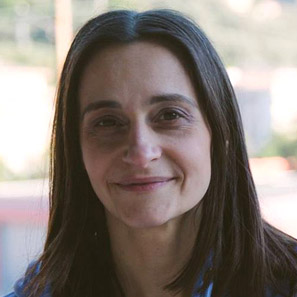 Raffaella
Galoppi was born in 1974 in Chiavari, Ligury. Since 2011, she enters
directly into communication with the Universal Consciousness through
unified quantum field. She starts a road to a profound inner knowledge
discovering, step by step , its true essence, a process of
transformation of our being. Raffaella channels the unified quantum
field, the Universal Consciousness expresses through her, it helps and
illuminates all those who listen her, to ensure that everything is
happening and to create a unique plan based on the fundamental principle
of “ I AM”. Raffaella today offers to the Supreme Consciousness service
that has also driven in a run of Pranic Nourishment experimenting and
alternating solid food with phases of Prana. Nowadays, she organizes
group and individual channeling meetings to bring people to live the
depth of being.
Raffaella
Galoppi was born in 1974 in Chiavari, Ligury. Since 2011, she enters
directly into communication with the Universal Consciousness through
unified quantum field. She starts a road to a profound inner knowledge
discovering, step by step , its true essence, a process of
transformation of our being. Raffaella channels the unified quantum
field, the Universal Consciousness expresses through her, it helps and
illuminates all those who listen her, to ensure that everything is
happening and to create a unique plan based on the fundamental principle
of “ I AM”. Raffaella today offers to the Supreme Consciousness service
that has also driven in a run of Pranic Nourishment experimenting and
alternating solid food with phases of Prana. Nowadays, she organizes
group and individual channeling meetings to bring people to live the
depth of being.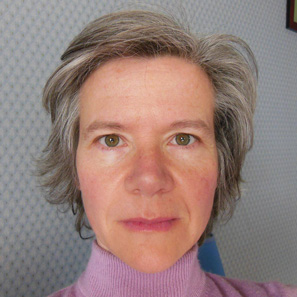 Dominique
was born in 1966 in Belgium. From 2013 great changes take place in her
life, leaving out a big health problem. She discovered raw food one
evening while eating at a friend and it goes overnight to this type of
diet, guided by his intuition . At the same time she starts the
assiduous practice of Vipassana meditation, to find out who she really
is and deconstruct the person created by educational formatting. She
begins short fasts periods (between 7 and 10 days) and she will make 6
over two years. In April 2014, it is reiki that enters her life, even
putting more concretely in the presence of this universal energy that
sustains us all. It is in June 2015 that the universe makes her the
wonderful gift of becoming pranic spontaneously , without having sought.
Currently, she accompanies people on the path of spiritual awakening of
consciences by Reiki, relaxation therapy, meditation and accompanying
on pranic detoox. She starts giving her first lectures on Pranic
Nourishment in spring 2016.
Dominique
was born in 1966 in Belgium. From 2013 great changes take place in her
life, leaving out a big health problem. She discovered raw food one
evening while eating at a friend and it goes overnight to this type of
diet, guided by his intuition . At the same time she starts the
assiduous practice of Vipassana meditation, to find out who she really
is and deconstruct the person created by educational formatting. She
begins short fasts periods (between 7 and 10 days) and she will make 6
over two years. In April 2014, it is reiki that enters her life, even
putting more concretely in the presence of this universal energy that
sustains us all. It is in June 2015 that the universe makes her the
wonderful gift of becoming pranic spontaneously , without having sought.
Currently, she accompanies people on the path of spiritual awakening of
consciences by Reiki, relaxation therapy, meditation and accompanying
on pranic detoox. She starts giving her first lectures on Pranic
Nourishment in spring 2016.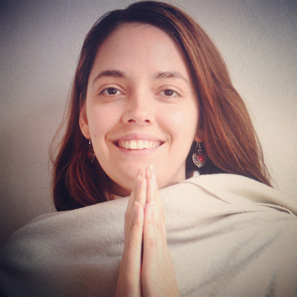 Alyna
was born in 1990, moving within an existence made of light and constant
elevation of her being, she discovers the possibility of Pranic
Nourishment at the dawn of his eighteen years where she spent a whole
month without eating or drinking in a state of absolute total grace.
Since then, her path was that of an unbounded desire to regain this
state unit that now convey with great honor and great joy. She feeds on
Divine Light since March 2015 and taught with all his love opportunities
and benefits of this change of Being through days of conferences, care
and by writing a book, still ongoing for the time. “Life is delicious
and it comes to know the taste with all the delicacy, depth and
simplicity of your hearts. Afford to accept to say Yes to Life, Yes to
nutrition, healing, elevation and transcendence by the Light,
Consciousness, Unity. This is what, in the exchanges and meetings,
Gratitude fills me with divine thanks. I love you.”
Alyna
was born in 1990, moving within an existence made of light and constant
elevation of her being, she discovers the possibility of Pranic
Nourishment at the dawn of his eighteen years where she spent a whole
month without eating or drinking in a state of absolute total grace.
Since then, her path was that of an unbounded desire to regain this
state unit that now convey with great honor and great joy. She feeds on
Divine Light since March 2015 and taught with all his love opportunities
and benefits of this change of Being through days of conferences, care
and by writing a book, still ongoing for the time. “Life is delicious
and it comes to know the taste with all the delicacy, depth and
simplicity of your hearts. Afford to accept to say Yes to Life, Yes to
nutrition, healing, elevation and transcendence by the Light,
Consciousness, Unity. This is what, in the exchanges and meetings,
Gratitude fills me with divine thanks. I love you.”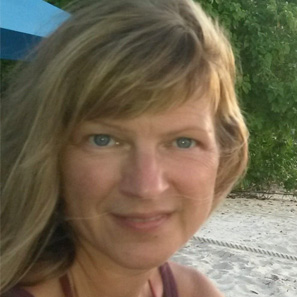 Randi
came to this planet in 1971. In the last 10 years she went through a
very deep and transformational process of chronic body pain and
emotional suffering. In Medicine it´s called a metabolic disorder.
Coming to a point where nobody could help anymore having everything lost
and being suicidal because of the pains Randi decided to heal herself
by expanding her consciousness and giving her live in total devotion and
service for the ALL. She creates her very individual Pranic Process,
that’s compatible with her special body circumstances. She´s going a
smooth path, focussed on expanding consciousness and healing by rising
the vibratory level, just letting it form in a loving trusting and aware
day to day decision. Along her path her perception of different
frequencies and her ability to use them to create healing realities
evolves. She is deeply connected with the quantum field, to the
frequency of BiGu and the Qi Gong Path of the Tian Gong Institute.
Randi
came to this planet in 1971. In the last 10 years she went through a
very deep and transformational process of chronic body pain and
emotional suffering. In Medicine it´s called a metabolic disorder.
Coming to a point where nobody could help anymore having everything lost
and being suicidal because of the pains Randi decided to heal herself
by expanding her consciousness and giving her live in total devotion and
service for the ALL. She creates her very individual Pranic Process,
that’s compatible with her special body circumstances. She´s going a
smooth path, focussed on expanding consciousness and healing by rising
the vibratory level, just letting it form in a loving trusting and aware
day to day decision. Along her path her perception of different
frequencies and her ability to use them to create healing realities
evolves. She is deeply connected with the quantum field, to the
frequency of BiGu and the Qi Gong Path of the Tian Gong Institute. Pascal
Martelli, born in 1981 in Switzerland has a foot in shamanism and
another in science. With a PhD in neurophysics, he continues his
research in altered state of consciousness (lucid dreams, trance and
meditation). He is also a therapist giving healing and guidance. His
goal is to create bridges between the invisible and the visible world!
He received the pranic teachings from Henri Monfort, Nicolas Pilartz and
Jasmuheen. “It’s through my Spiritual healing that I discovered a
decreasing need of sleep and food, more generally less physical,
emotional and mental hunger!”
Pascal
Martelli, born in 1981 in Switzerland has a foot in shamanism and
another in science. With a PhD in neurophysics, he continues his
research in altered state of consciousness (lucid dreams, trance and
meditation). He is also a therapist giving healing and guidance. His
goal is to create bridges between the invisible and the visible world!
He received the pranic teachings from Henri Monfort, Nicolas Pilartz and
Jasmuheen. “It’s through my Spiritual healing that I discovered a
decreasing need of sleep and food, more generally less physical,
emotional and mental hunger!”